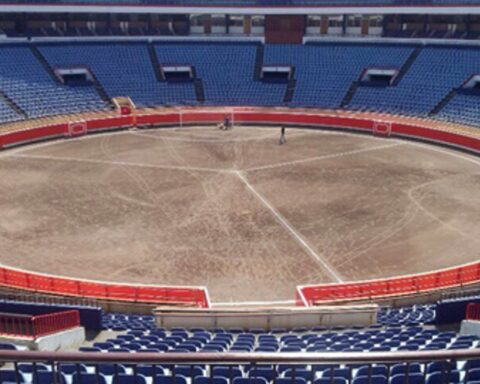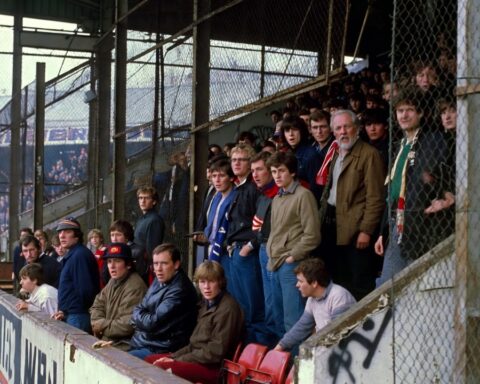The sun was a cruel bastard, baking the concrete sprawl of Querétaro, Mexico, when the news hit like a tequila-fueled sucker punch: Innovatio Capital, a slick Atlanta-based outfit helmed by some cat named Marc Spiegel, had sunk its claws into Querétaro FC for a cool $120 million.
The Gallos Blancos, those scrappy underdogs of Liga MX, were now the first Mexican club to fall under majority U.S. ownership. It was July 2025, and the air reeked of betrayal, ambition, and the unmistakable stench of vulture capitalism.
This wasn’t just a sale, however; it was a seismic jolt to the soul of Mexican football. Querétaro, a club with 75 years of history, had been passed around like a cheap bottle of pulque—first the government, then Grupo Pegaso, Grupo Colibríes, Grupo Imagen, and finally Grupo Caliente, who’d been forced to unload it after a brutal fan brawl in 2022 left the league’s suits demanding an end to their multi-club ownership.
Enter Innovatio, a pack of data-driven hyenas with dollar signs in their eyes, sniffing out undervalued assets like bloodhounds on a narco’s trail.
Spiegel, a waste management mogul turned sports investor, had been prowling the globe, eyeballing over 200 deals before landing on this one.
Why? Because Liga MX is a gold mine disguised as a piñata, and he brought a baseball bat. The deal screamed opportunity, but it also whispered something darker—a predatory hunger that’s been gnawing at football’s bones worldwide.
These aren’t your grandpappy’s club owners, content with a local legacy and a few trophies. No, Innovatio’s crew—Spiegel, his finance guy Chris Spooner, and Ed Malyon, some Brit with a nose for sports media—aren’t here for the love of the game.
They’re here to flip the script, to turn Querétaro into a shiny cog in a global machine. Their playbook? Data analytics, tech-driven “operational edges,” and a vision to “professionalize” a club that’s been bleeding passion but not profit.
It’s the kind of cold, calculated move that makes you wonder if the beautiful game’s heart is still beating. Mexican football fans, those rabid, banner-waving lunatics who live and die by their teams, aren’t stupid. They see the vultures circling.
Querétaro’s sale isn’t an isolated heist; it’s the opening salvo in a full-scale invasion. Three more Liga MX clubs are reportedly on the chopping block, with valuations creeping upward like a junkie’s fever.
Apollo Global Management, another Wall Street behemoth, is dangling $1.25 billion for a slice of Liga MX’s media rights and ticket revenue. The math is obscene: build a 25,000-seat stadium in Mexico for $50 million—chump change compared to the U.S.—and you’ve got a cash cow that milks itself.
Liga MX outdraws MLS in TV viewership on both sides of the border, yet its clubs are valued at a fraction of their American counterparts.
Querétaro went for 5x revenue; MLS clubs fetch 9.3x. It’s a bargain bin for billionaires, and they’re loading up their carts.
But let’s not kid ourselves—this isn’t about growing the game. It’s about squeezing it dry. Vulture capitalists like Innovatio don’t invest in passion; they invest in arbitrage.
They see a fragmented media landscape, a league ripe for “centralization,” and a fanbase too loyal to quit, no matter how much the suits jack up ticket prices or plaster the stadium with corporate logos.
Spiegel’s been upfront about it: Liga MX is “undervalued,” a polite way of saying it’s a carcass ready for carving. His crew’s already talking about streamlining operations, consolidating media rights, and turning Querétaro into a global brand.
Sounds sexy until you realize it’s code for firing local staff, hiking costs, and maybe shipping a few matches to the U.S. for the gringo dollar.
The timing’s no accident, either. The deal closed during Querétaro’s 75th anniversary, a symbolic middle finger to tradition. Spiegel’s all smiles, talking about “community” and “long-term projects,” but the fans at La Corregidora aren’t buying it.
They’ve seen this movie before—foreign investors promising glory, only to leave clubs hollowed out, their soul traded for a quick buck.
The Premier League’s been through it, with American owners turning historic clubs into glorified ATMs. Now Mexico’s on the menu, and the menu’s written in English.
What does this mean for Liga MX? Chaos, pure and unfiltered. The league’s already a pressure cooker—18 teams, passionate fans, and a history of volatility.
Innovatio’s takeover could spark a revolution, but not the kind Spiegel’s pitching. If they succeed, expect a flood of foreign cash, glitzy stadiums, and a Liga MX that looks more like MLS: sanitized, corporate, and designed for streaming deals with Amazon or Fox.
Other clubs will follow, chasing the same payday. But if it flops—and Querétaro’s track record, with zero top-flight titles and a 12th-place finish last season, ain’t exactly inspiring—the backlash could be brutal.
Mexican fans don’t just boo; they riot. Just ask Grupo Caliente, who got run out of town after that 2022 brawl. And then there’s the geopolitical kicker: Donald Trump’s back in the White House, railing against Mexico with his usual venom.
Tariffs, border walls, immigration crackdowns—how’s that gonna play when U.S. investors start buying up Mexico’s cultural crown jewels? Querétaro’s fans are already skeptical; throw in some MAGA-fueled trade war, and you’ve got a recipe for resentment.
The optics of American vultures picking at Mexican football’s bones while Trump’s policies choke cross-border goodwill? It’s a Molotov cocktail waiting for a match.
The bigger picture is uglier still. Football’s becoming a playground for the ultra-rich, a global casino where clubs are chips and fans are suckers. Vulture capitalists don’t care about the roar of the crowd or the poetry of a perfectly timed taconazo.
They care about ROI, EBITDA, and exit strategies. Querétaro’s just the start—Necaxa’s already got Hollywood money from Eva Longoria and Ryan Reynolds, and more clubs are on the block.
The game’s being rewired, not for the diehards in the stands but for the suits in the boardroom. And when the suits are done, what’s left? A league that’s richer on paper but poorer in spirit, a hollowed-out husk where passion used to live.
So, here we are, staring down the barrel of a new era. Querétaro FC, once a symbol of local pride, is now a line item in Innovatio’s portfolio.
Spiegel’s got big plans—data-driven scouting, global branding, maybe even a new stadium—but plans like that come at a cost. The fans, the city, the game itself—they’re the ones who’ll pay.
As the vultures circle, Mexican football stands at a crossroads: embrace the money and risk losing its soul, or fight back and risk being left behind.
Either way, the game’s changing, and it’s changing fast. Somewhere, in the smoky haze of a cantina, the old gods of football weep, their tears mixing with the salt on the rim of a glass. The Gallos Blancos are flying, but they’re flying straight into the jaws of the beast.









